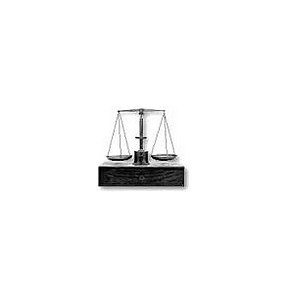Best Mortgage Lawyers in Tallinn
Share your needs with us, get contacted by law firms.
Free. Takes 2 min.
Free Guide to Hiring a Real Estate Lawyer
List of the best lawyers in Tallinn, Estonia
About Mortgage Law in Tallinn, Estonia:
The mortgage law in Estonia, inclusive of its capital city Tallinn, functions within the framework of the regional European laws, the local Civil Code, Law of Property and European Directives. Mortgages in Tallinn follow a clear and detailed legal process which includes steps like mortgage application, property appraisal, contract drafting and finally contract approval. All mortgages are registered with the Land Register of Estonia, making the entire process transparent and secure. Due to Estonia's clear property ownership regulations, the mortgage market is competitive and quick.
Why You May Need a Lawyer:
Though the process seems straightforward, there can be complexities due to stringent lending criteria, property eligibility requirements, and tax implications. For instance, if you are non-resident or are a foreign entity aiming to get a mortgage, laws can be different. Navigating through legal documentation can be daunting for first-time buyers or foreign investors. In lengthy foreclosure proceedings or dealing with default scenarios, the assistance of a lawyer can be invaluable. Lawyers can also help in negotiating favorable mortgage loan terms, ensuring compliance with all laws, and protecting your rights throughout the process.
Local Laws Overview:
Under Estonian law, mortgages are regulated by the Law of Property Act. As per this law, the mortgage is created when the contract is registered in the Land Register. For residential properties, it is mandatory to hold valid home insurance covering the mortgage amount. From a tax perspective, loan interests are not tax deductible except for loans used for business purposes. It is also important to note that all legal documentation must be drafted or translated in the Estonian language. Furthermore, Estonia's law protects borrowers where terms of the contract are unclear; they will be interpreted in favor of the borrower.
Frequently Asked Questions:
What is the typical mortgage term in Estonia?
The usual term for a mortgage in Estonia is between 20 to 30 years but can extend up to 40 years in some cases.
What is the average mortgage interest rate in Estonia?
The interest rate largely depends on the European Central Bank's base rate, but generally varies between 2-4%.
What documentation is required for a mortgage application?
Documents like proof of identity, proof of income, details of the property, and proof of funds for the down payment are typically required.
Can non-residents apply for a mortgage in Estonia?
Yes, non-residents can apply for a mortgage. However, they may face stricter requirements and additional documentation.
What happens in a default scenario?
In case of default, the bank has the right to sell the property to recover the mortgage amount. This can lead to a potential foreclosure notice and potential eviction from the property.
Additional Resources:
For more information, the Ministry of Justice's website provides details on property and mortgage law in Estonia. The Land Board of Estonia (Maa-amet) and the local municipality's websites provide valuable resources about property ownership, registration, and more. Talking to a local real estate agency could also provide valuable insights and advice.
Next Steps:
If you're considering applying for a mortgage in Tallinn or dealing with any mortgage related issue, it is advisable to consult with a professional who specializes in Estonian mortgage law. Gather all relevant documents and make sure you fully understand your rights and obligations under local laws. Remember, it is important to take legal advice before signing any contract or agreement.
Lawzana helps you find the best lawyers and law firms in Tallinn through a curated and pre-screened list of qualified legal professionals. Our platform offers rankings and detailed profiles of attorneys and law firms, allowing you to compare based on practice areas, including Mortgage, experience, and client feedback.
Each profile includes a description of the firm's areas of practice, client reviews, team members and partners, year of establishment, spoken languages, office locations, contact information, social media presence, and any published articles or resources. Most firms on our platform speak English and are experienced in both local and international legal matters.
Get a quote from top-rated law firms in Tallinn, Estonia — quickly, securely, and without unnecessary hassle.
Disclaimer:
The information provided on this page is for general informational purposes only and does not constitute legal advice. While we strive to ensure the accuracy and relevance of the content, legal information may change over time, and interpretations of the law can vary. You should always consult with a qualified legal professional for advice specific to your situation.
We disclaim all liability for actions taken or not taken based on the content of this page. If you believe any information is incorrect or outdated, please contact us, and we will review and update it where appropriate.














